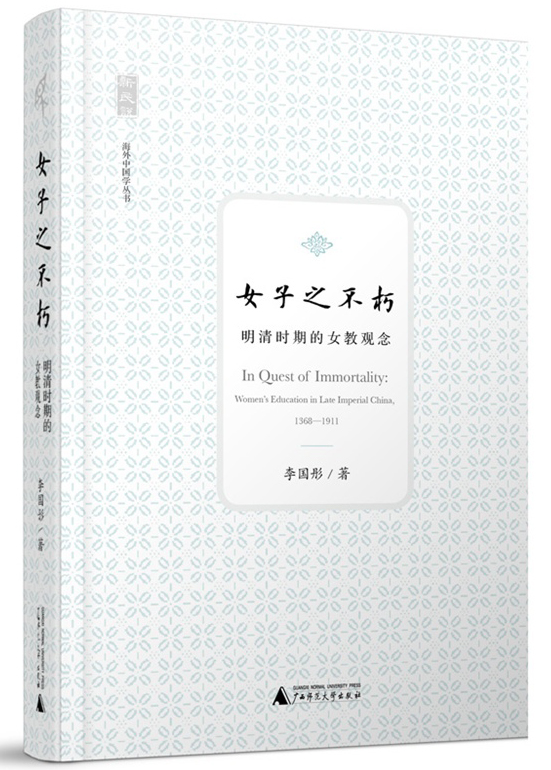A review of women’s role in imperial China

In Quest of Immortality: Women’s Education in Imperial China
Author: Li Guotong
Publisher: Guangxi Normal University Press
Ancient scholars aspired to be virtuous, serve the nation, and express themselves, which were known as the “three immortal deeds.” However, this motto seemed to apply only to men, not women. In discussions of women in the Ming and Qing dynasties, some cannot help but think of Ms. Xianglin, the whining, long-suffering, exploited housemaid in Lu Xun’s work, but she was clearly a stereotype because there was a huge class difference.
In her new book In Quest of Immortality: Women’s Education in Imperial China, Li Guotong points out that while men aimed at “self-cultivation, regulating the family, and ruling the state and the world,” Ming-Qing women were looking to achieve their “immortality” in education and writing.
The role of women as primary caregivers for husbands and children served as an indirect way to fulfill their life purpose. The resilient pursuit of “immortality” also shed some light on modern women’s enlightenment.
Books for women became popular and easy to read in that era and the formal writing style gave way to vivid folk biographical records. Indeed, this transformation reflected the process of feminine culture challenging traditional orthodoxy, which was manifested in the interpretation of motherhood. These books stressed that motherhood could transcend womanhood and wifehood to stand on par with fatherhood because men embarked on an official career and were constantly absent in family affairs, leaving women to shoulder most responsibilities.
The author shares her insight on women’s literature during that time. She did not deny Western influence on the rise of feminism in the late Qing Dynasty, but noted that female poets had fully embraced their impulse of expression and sense of responsibility, which demonstrated the local footing of modern feminism.
In sum, the scope of study extends from Jiangnan region to Fujian Province. There are a few parts of the book that could be further improved upon, such as the layout, consistency and relevance. The book is written on the basis of published papers, so some chapters are not coherent. Also, the part on women’s enlightenment seems like a deviation from the theme of women’s education.
Wang Yan is an associate professor from the School of Liberal Arts at Renmin University of China.

 PRINT
PRINT CLOSE
CLOSE